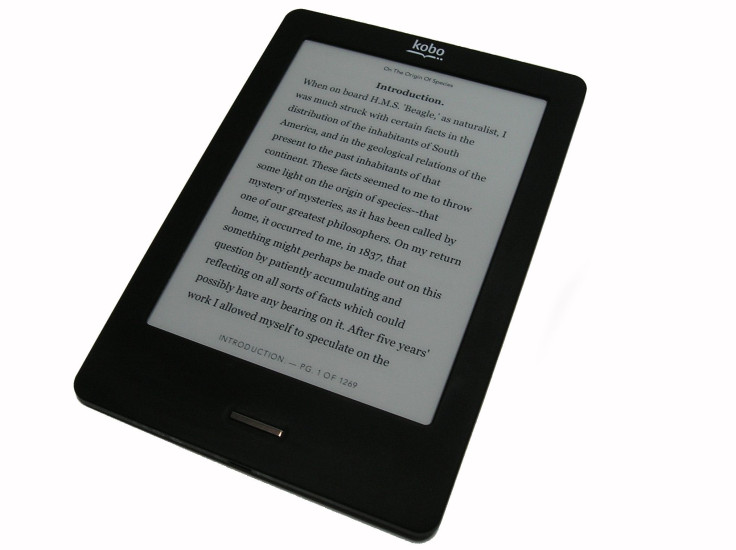Britons Eschewing E-Books In Favor Of Hardback Versions

Remember how Captain Kirk put on a pair of reading glasses and opened an antique book in one of the “Star Trek” movies, extolling the physical feel that he couldn’t get from the series’ ubiquitous tablets? Britons may be taking a page from his book.
The Publishers Association reported Thursday a 17 percent drop in the overall consumer e-book market to $263 million [204 million pounds], the lowest level since 2011, despite an increase of 7 percent overall in the sales of books and journals overall to $6.2 billion [4.8 billion pounds]. Audio downloads and academic/professional digital books were higher.
Read: 3D Printing Moving To Construction Sites, Making Customization Easier
“I wouldn’t say that the e-book dream is over but people are clearly making decisions on when they want to spend time with their screens,” Stephen Lotinga, chief exeutive of the Publishers Association, told the Guardian.
“There is generally a sense that people are now getting screen tiredness, or fatigue, from so many devices being used, watched or looked at in their week. [Printed] books provide an opportunity to step away from that.”
Additionally, some books just work better in print.
Read: US Should Stay In Paris Accord, Perry Says
"The print format is appealing to many and publishers are finding that some genres lend themselves more to print than others and are using them to drive sales of print books," Phil Stokes, head of PwC's entertainment and media division in the U.K., told CNN.
Children’s books and cookbooks are more popular in hardbook format, Stokes said. “Giving a book as a gift is far less impressive if you are giving a digital version," he said, also noting the resurgence in coloring books.
In a report issued in November 2015, U.K. regulator Ofcom reported parents are struggling to limit their children’s screen time to help improve literacy. The report found tablets becoming the default entertainment device for children, especially young children, and the content they are consuming “is increasingly curated by digital intermediaries,” like Google and YouTube.
Using the smaller screens makes it more difficult for parents to monitor what their children are watching.
Ofcom also has found a third of adults have attempted “digital detox,” going at least a day without the internet.
“The most common reasons for taking a 'tech timeout' were to spend more time doing other things [cited by 44 percent] and more time talking to friends and family [38 percent],” Ofcom said.
“Many people found their time offline to be a positive experience: a third [33 percent] said they felt more productive, 27 percent found it liberating, while a quarter [25 percent] enjoyed life more. However, 16 percent experienced a 'fear of missing out' ['FOMO'] while on the web wagon, 15 percent felt lost and 14 percent 'cut-off.’ “
In the most extreme efforts to detox, 16 percent took vacations with no internet access, and 9 percent sought destinations without cell phone coverage, the report said.
MarketIntelReports, however, said last month writing an obituary for e-readers might be premature. In its forecast through 2021, the research firm said it expects the devices to proliferate as more e-books become available at libraries and given the devices’ portability.
© Copyright IBTimes 2024. All rights reserved.






















